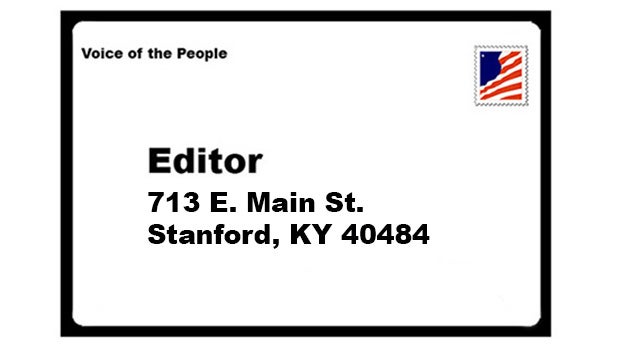Get smarter about Amazon-type projects
Published 6:30 am Wednesday, November 21, 2018
By Jim Waters
Guest columnist
Should we be cynical enough to believe critics claiming that Amazon knew from the beginning of its yearlong process to ostensibly determine the location of a second headquarters that it would expand into the New York City and Washington, D.C. regions and simply used the bidding war to extract $2 billion worth of additional corporate-welfare handouts from those cities?
Maybe. Maybe not.
Either way, citizens should demand their leaders get smarter about these projects by being more transparent and focused on creating the economic environment and education system needed to attract new opportunities rather than just seeing how many taxpayer-backed goodies they can stuff into incentive stockings.
Amazon itself even seems to suggest this would be a better approach, admitting in in its news release revealing the new locations that “economic incentives were one factor in our decision – but attracting top talent was the leading driver.”
It’s not that cities like Louisville – one of 236 competing for the Amazon shop that failed – wasn’t offering enough treats; rather, it doesn’t have the needed workforce.
Still, many politicians want to build Kentucky’s entire economic-development process around secretive incentive packages, which almost never deliver on their promises regarding jobs and wages.
Revealing such information, they incessantly claim, would put the state or community at a competitive disadvantage because companies wouldn’t participate.
However, recent developments surrounding huge development projects suggest more, not less, transparency would restore some sanity to these bidding wars.
From the kind of buyer’s remorse expressed by state lawmakers pressured to approve a direct $15 million taxpayer-funded expenditure for a private industry in the closing hours of the 2017 legislative session – even though they didn’t know what they were voting for – more transparency before the vote likely would have halted such a sloppy measure.
It also would have given political cover to those who wanted to refuse to go along with such nonsense.
Louisville Mayor Greg Fischer not only went to court to keep reporters from accessing the incentive package offered by the city to Amazon before the online retail giant revealed its new headquarters’ location, but he’s also doubled down on not releasing the information even though the city was eliminated from the competition earlier this year.
A local judge has said there’s no legal justification for exempting the proposal from open records requirements.
Still, the mayor insists on expending resources on a Kentucky Court of Appeals case.
Perhaps it’s because he knows that when citizens find out what Louisville offered to give away to get this project, they likely will deem it – as even newly elected New York Democratic representative and avowed socialist Alexandria Ocasio-Cortez tweeted that constituents called her city’s $1.5 billion handout to Amazon: “outrageous.”
One thing Fischer can’t hide behind in a courtroom is that fewer than three in 10 Kentucky eighth-grade students are proficient in math – an area of academic performance absolutely essential to high-tech workforces – or that barely half of the commonwealth’s high-schoolers who manage to graduate receive diplomas worth little more than the paper upon which they’re printed.
Subjecting corporate handouts to open records requests when it matters would reduce politicians’ power to pick which companies will be the winners while using their one-hit wonder response: “Every other state is doing it.”
It would also broaden the focus development policies beyond making giveaways the cornerstones of attempts to attract new opportunities to including real results in terms of creating the kind of overall economic and education environment that make our state and its communities attractive to all sizes and types of companies – not just the ones with political connections or friends in Frankfort or at city hall.
Jim Waters is president and CEO of the Bluegrass Institute for Public Policy Solutions, Kentucky’s free-market think tank. He can be reached at jwaters@freedomkentucky.com and @bipps on Twitter.





